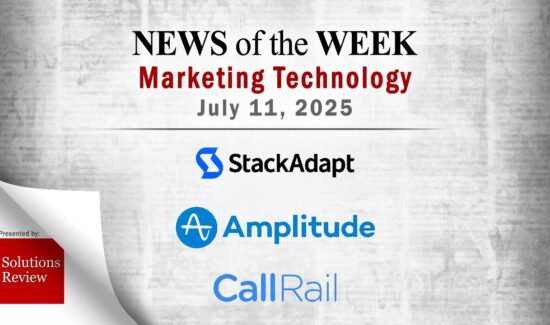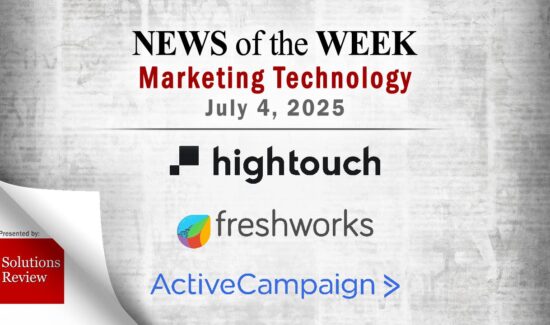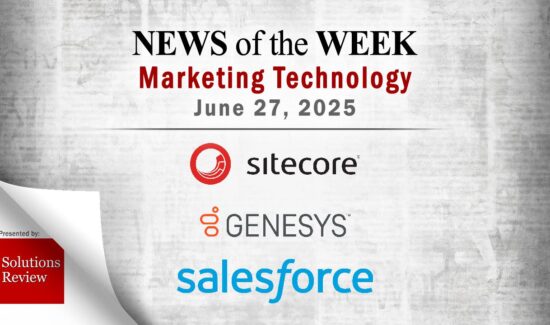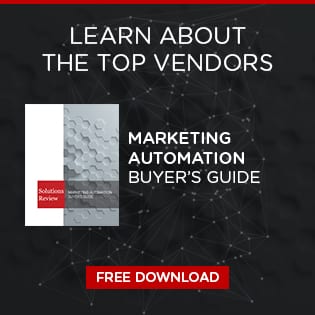What’s Changed: 2023 Gartner Magic Quadrant for Multichannel Marketing Hubs


The editors at Solutions Review highlight and summarize the key takeaways and updates in Gartner’s 2023 iteration of their Magic Quadrant for Multichannel Marketing Hubs.
Analyst house Gartner, Inc. recently released the 2023 version of its Magic Quadrant for Multichannel Marketing Hubs. Gartner defines a multichannel marketing hub (MMH) “as a technology solution that orchestrates a company’s communications and offers to customer segments across multiple channels. These channels include websites, mobile messaging, social, direct mail, call centers, paid media, and email. MMH capabilities may also extend to integrating marketing offers/leads with sales for execution in both B2B and B2C environments.”
The standard capabilities of an MMH solution include customer profile management, segmentation, campaign creation, message creation, campaign workflows, message execution, advanced analytics functionality, personalization, content management, event triggering, predictive analytics, customer journey analytics, and others.
What’s Changed: 2023 Gartner Magic Quadrant for Multichannel Marketing Hubs
In this updated Magic Quadrant, Gartner identifies fourteen of the most significant Multichannel Marketing Hubs in the marketplace. The researchers behind the report—Rob Brosnan, Benjamin Bloom, Tia Smart, Julia Multedo, and Greg Carlucci—evaluated the strengths and weaknesses of each provider listed and ranked them on the signature “Magic Quadrant” graph, which provides readers with an illustration of each vendor’s ability to execute their vision. The diagram includes four quadrants: leaders, challengers, niche players, and visionaries. A breakdown of each category and the companies associated with it is below.
Leaders
Adobe is the top Leader in this year’s report. Its MMH solution, Adobe Journey Optimizer, leverages the services and applications in the Adobe Experience Platform suite to help companies optimize digital experiences and support profile management, analytics, and journey orchestration efforts. The company works with global companies across industries, emphasizing enterprises in the Americas. Its strengths include its first-party profile hub, support for healthcare industries, and evolved product package, which offers full-featured versions of a real-time customer data platform, journey analytics, and experience management tools.
Salesforce is next on the list, earning its place with the Salesforce Marketing Cloud solution suite, which includes the company’s Engagement, Personalization, Intelligence, Data Cloud for Marketing (formerly Salesforce CDP and Genie), and Loyalty Management solutions. Salesforce’s MMH clients are primarily B2C marketers in financial service, high technology, media, retail, and healthcare industries across the North American, European, and Latin American territories. Gartner spotlights Salesforce’s cross-cloud CRM data, partnerships, integration ecosystem, and roadmap for generative AI as some of its differentiating qualities.
Braze is the third and final Leader in Gartner’s report. This is an upgrade for the provider, with Gartner saying, “the combined strength of its Customer Engagement Platform and its growing presence in enterprise martech stacks” elevated it from Challenger to Leader. The company provides cross-channel customer engagement and journey orchestration capabilities to B2C marketers in the retail, healthcare, and financial services markets. Its strengths as an MMH provider include its stream processing architecture, integration with customer data platforms (CDPs), a new generative AI integration, personalization capabilities, and growing market momentum.
Challengers
Optimove starts the Challengers category with an MMH solution that provides companies with unified customer profiles, AI-supported automated segmentation tools, campaign orchestration, analytics, and execution features. Its operation focuses on retail, media, gaming, transportation, and financial services businesses in the EMEA, Latin America, and North America markets. Notable features include its prescriptive prioritization criteria for campaigns, AI-based innovative orchestration capabilities, streamlined UX/UI, analytics, and other AI functionalities.
Insider earns its place in this report with its Multichannel Growth Management Platform, which combines mobile and messaging capabilities alongside support for unified customer profiles and AI/ML-powered personalization tools. The company primarily works with B2C marketers in mid-to-enterprise-scale organizations in retail, entertainment, and telecommunications markets worldwide. Gartner spotlights Insider’s user experience, data management, journey analytics, customer profile management, and app marketplace as its strengths as an MMH vendor.
Acoustic’s MMH solution, Acoustic Campaign, provides users with campaign management, personalization, analytics, and content management modules designed to unify the customer experience and connect the buyer experience with marketing efforts. Acoustic focuses its operations in the North American and EMEA territories and often works with midsize and large retail, travel, hospitality, and financial services enterprises. Its notable strengths as an MMH vendor include its client experience, customer success services, partner integrations, configurable journey templates, and journey program library.
Iterable closes out the category with an MMH platform designed to ingest data from multiple datasets, helping marketers create adaptive campaigns with journey-building capabilities. Iterable’s clients are midsize to large organizations in the professional services, healthcare, transportation, retail, and consumer goods industries. It differentiates itself in the MMH market with its drag-and-drop workflow tools, AI integration areas, audience-building features, customer success resources, no-code functionalities, and audience insights.
Niche Players
SAS is the first Niche Player in Gartner’s Magic Quadrant. With SAS Customer Intelligence 360, the company provides marketers with the functionalities they need to use data science in their digital marketing efforts. The company focuses on large, multi-national organizations in the media, retail, financial services, and telecommunications industries across the North American and EMEA markets. Notable strengths include the breadth of its customer data management, predictive model development, built-in marketing attribution, access to multiple data sources, and integrations with systems like Salesforce Sales Cloud.
Acquia earns its spot on the report with the Acquia Marketing Cloud solution suite, which includes the company’s customer data platform, digital asset management, personalization, campaign, and product information management tools. Its operations focus on North America, APAC, and EMEA and specialize in retail, healthcare, consumer goods, education, and professional services companies. Strengths include its AI model management capabilities, web-centric orchestration features, segmented campaign management, and drag-and-drop personalization tools.
Cheetah Digital by Marigold offers an MMH solution that consists of three tools: Cheetah Messaging for engagement, Cheetah Loyalty for loyalty management, and Cheetah Experiences for acquisition. Marigold—the result of Cheetah Digital and CMG Group’s 2022 merger—primarily targets email marketing firms in North America and Europe, although it’s growing its presence in Latin America and APAC. According to Gartner, the platform’s defining characteristics are its first-party engagement offerings, low-code environments, emphasis on email marketing tools, and improvements to the user experience.
HCLSoftware rounds out the Nicher Players with its Unica platform. It focuses on large enterprises in North America, APAC, and EMEA’s healthcare, retail, and financial services markets. Gartner identifies its industry-specific journey library, simple user interface, platform flexibility, and collaboration tools as its strengths as an MMH provider, as they help brands forecast budgets, track spending across programs, and manage their marketing calendars.
Visionaries
Redpoint Global is the first Visionary in Gartner’s report. Its MMH solution is the rg1 platform, composed of a customer data platform, real-time interaction, and a journey orchestration module. The company predominantly works with midsize and large organizations in North America and EMEA, focusing on brands in the media, travel, hospitality, retail, financial services, and healthcare industries. The rg1 platform differentiates itself in the MMH market with its AI functionalities, flexible deployment options, integrations, and ability to help multichannel marketers host or perform in on-premises and cloud-centric environments.
Pegasystems’s Customer Decision Hub (CDH) earns it a Visionary placement in Gartner’s report. The CDH solution provides enterprise B2C healthcare, financial services, and telecommunications marketers with predicted customer engagements powered by real-time AI functionalities. Other strengths include its workflow management capabilities, scalable journey orchestration, customer profile management, user interface, and data filters that help users enhance customer journeys.
SAP Emarsys is the final vendor listed in Gartner’s report. The SAP Emarsys Customer Engagement platform includes the customer engagement elements of SAP’s CX CRM. It uses them to help B2C organizations manage customer interactions in consumer goods, media, entertainment, travel, hospitality, and retail markets. Its strengths as an MMH provider include its customer profile management capabilities, easy onboarding process, professional services offerings, enhanced data unification, consulting partnerships, and front and back-office integrations.





















